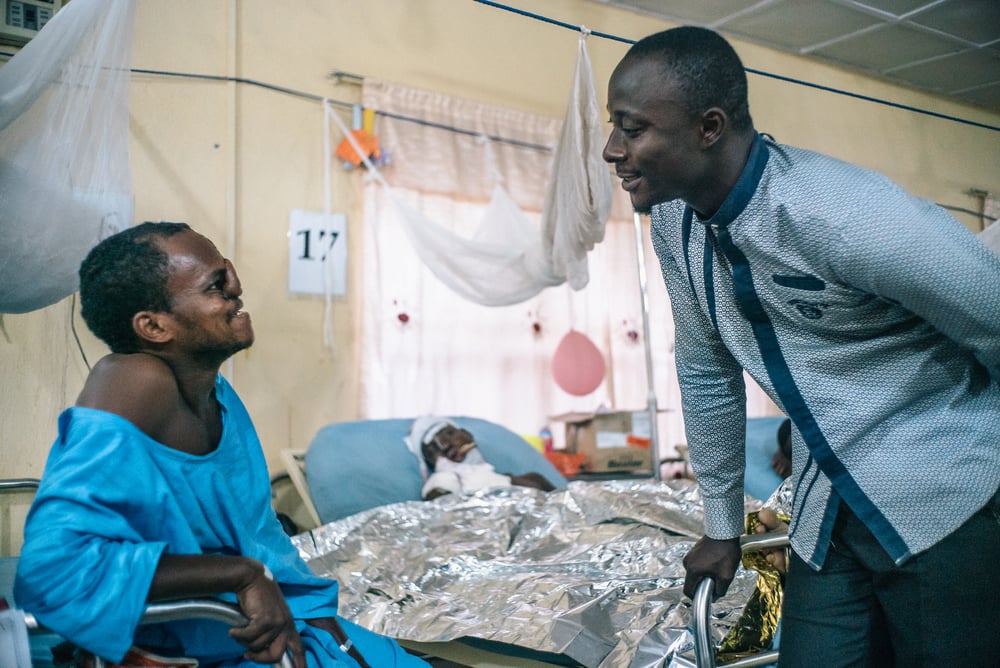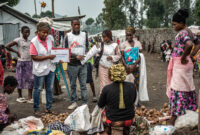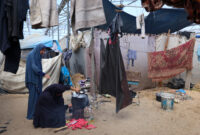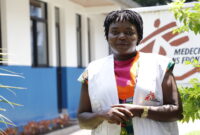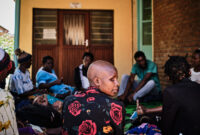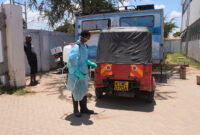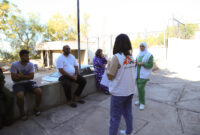An Open Letter from MSF to the Ministers of Health and International Development of Canada in regard to noma
Since 2014, Doctors Without Borders/Médecins Sans Frontières (MSF) has been supporting the Sokoto Noma Hospital, the only hospital in Nigeria – and one of the few in the world -, with a programme of activities for people affected by noma, including noma survivors and their families.
Noma is a neglected disease that affects people, especially children, living in low-income countries. It’s an infectious but non-contagious bacterial disease that starts as an inflammation of the gums, similar to a small mouth ulcer. The infection destroys the bone and tissue very quickly. It takes just days for noma to leave survivors with severe facial disfigurements that make it hard to eat, speak, see or breathe. Survivors must also deal with the social stigma caused by the horrific damage done to the face.
The following is a letter to the Ministers of Health and International Development of Canada requesting that Canada support adding noma to the World Health Organization (WHO)’s list of Neglected Tropical Diseases (NTDs).
August 31, 2022
Hon. Jean-Yves Duclos,
Minister of Health
Hon. Harjit Sajjan,
Minister of International Development
Open Letter Requesting Canada’s Support in Adding Noma to the World Health Organization’s List of Neglected Tropical Diseases
Honourable Ministers,
We are writing to you to request that Canada support adding noma, a bacterial disease primarily affecting people, especially children, living in low-income countries, to the World Health Organization (WHO)’s list of Neglected Tropical Diseases (NTDs).
Noma is a serious but treatable and preventable condition that affects people living in poverty, causing death and disfigurement. It is an infectious but non-contagious bacterial disease that starts as an inflammation of the gums, similar to a small mouth ulcer. The infection destroys the bone and tissue very quickly, affecting the jaw, lips, cheeks, nose, or eyes, depending on where the infection started. Up to 90% of people affected by noma die in the first two weeks if they don’t receive treatment with antibiotics on time, and its greatest impact is on children. Early detection is low and once noma attacks, many families don’t have access to or can’t afford the antibiotics to treat it. Most of the people with noma live in poor and isolated areas, where malnutrition is widespread and access to health and dental care is almost non-existent. The disease affects an estimated 140,000 children every year, and many who survive experience physical and mental consequences and face stigma and discrimination, particularly as a result of disfigurement, which isolate them from their communities.
As a medical humanitarian organization, Doctors Without Borders/Médecins Sans Frontières (MSF) encounters noma, and its impacts, in places where issues such as poverty and malnutrition are rife. Although preventable and treatable, noma receives neither the attention nor the resources it deserves. Noma’s inclusion on the WHO’s NTD List would help to draw attention to the disease and generate action to increasing access to treatment and prevention. The proposal to add noma to the WHO’s NTD List was recently put forward by Nigeria, and other countries have voiced their support for Nigeria’s proposal since that time, including Switzerland, a country that, like Canada, is not itself greatly impacted by noma, but has nevertheless shown leadership by championing its inclusion on the WHO List.
From a technical standpoint, noma meets all four required criteria to be listed as a Category A Neglected Tropical Disease, as outlined in the Recommendations of the WHO Strategic and Technical Advisory Group for Neglected Tropical Diseases (STAG-NTDs), which, in 2016, defined NTDs as disease conditions that:
1. Disproportionately affect populations living in poverty and cause important morbidity and mortality – including stigma and discrimination – in such populations, justifying a global response;
2. Primarily affect populations living in tropical and sub-tropical areas;
3. Are immediately amenable to broad control, elimination or eradication by applying one or more of the five public health strategies adopted by the Department for Control of NTDs, and/or;
4. Are relatively neglected by research – i.e., resource allocation is not commensurate with the magnitude of the problem’.
Noma is clearly deserving of a place on the WHO list, with formal recognition as a Neglected Tropical Disease. Inclusion on the list has helped draw attention to other diseases, including recent additions such as snakebite envenoming. The same can be done for noma, and Canada can show leadership in helping it get there by formally supporting its addition on the WHO NTDs list. A comprehensive global response to noma, which starts with adding noma to the WHO list of Neglected Tropical Diseases, also supports Canada’s broader objectives in the Feminist International Assistance Policy. Furthermore, earlier this summer, Canada signed the Kigali Declaration on Neglected Tropical Diseases. Actively supporting the addition of Noma to the list of NTDs is a simple but important step Canada can take to translate these commitments into action.
For these reasons, we are writing to call upon Canada to actively support the inclusion of noma as a Neglected Tropical Disease on the World Health Organization’s List. We kindly request a response to this letter, and as always remain available to speak with you about this and any other global public health priority.
Yours sincerely,
Joseph Belliveau,
Executive Director,
Doctors Without Borders/Médecins Sans Frontières (MSF)
